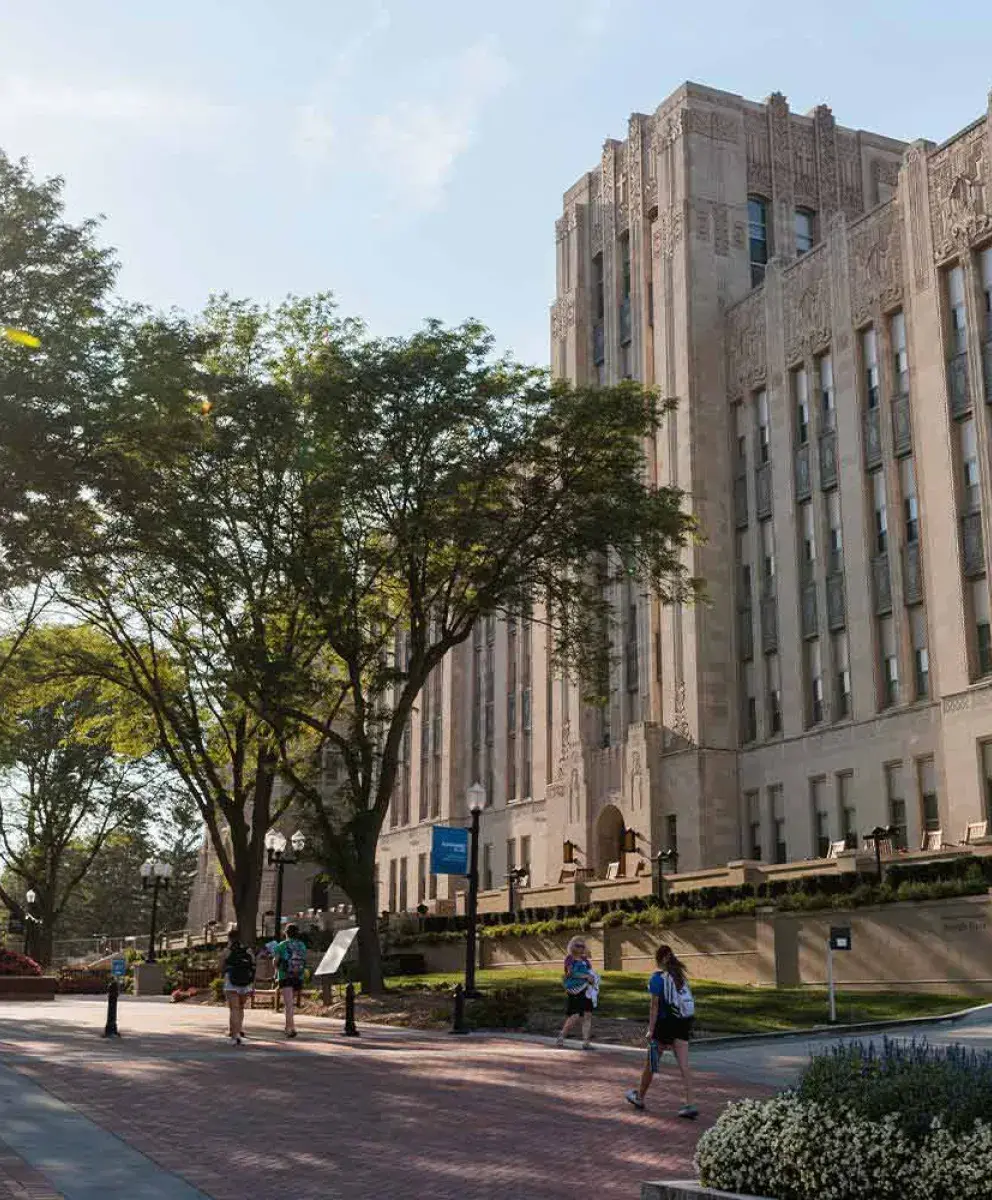
Alpha Sigma Nu
The Honor Society of Jesuit Colleges and Universities
Alpha Sigma Nu (ΑΣΝ) is unique among honor societies in that it seeks to promote the core principles of Jesuit education—scholarship, loyalty and service—while recognizing students who exemplify these values. ΑΣΝu also honors individuals who have distinguished themselves through intellectual, civic, religious, professional or commercial pursuits. The society’s mission includes fostering a lifelong commitment to the ideals of Jesuit education to open minds, hearts and doors to a lifelong journey of wisdom, faith and service. Invitation to ΑΣΝ is one of the highest honors bestowed at Jesuit institutions, including Creighton University.
History
Jesuit colleges and universities were not yet coeducational when ΑΣΝ was founded at Marquette University in 1915. The second chapter of the society was established at Creighton University in 1921. Within a decade of ΑΣΝ's founding, chapters were established at St. Louis University and the University of Detroit. Fifty years later, ΑΣΝ merged with Gamma Pi Epsilon (ΓΠΕ), the honor society for women at Jesuit colleges and universities, to honor both men and women at these institutions.
Our identity
The name Alpha Sigma Nu signifies the Greek words Adelphotes Scholastikon Nikephoron, meaning the company of honor students. The key of the society bears the three Greek letters ΑΣΝ together with the eye of wisdom. The society's colors are maroon and gold.

Core principles
Scholarship is the most important qualification for membership in ΑΣΝ. This reflects the primarily intellectual purpose of higher education. Yet a high grade point average alone does not demonstrate true scholarship, nor does the mastery of information and specialized knowledge.
ΑΣΝ recognizes people as scholars when they possess a depth of comprehension and a breadth of knowledge, and the society honors students who have a passion for knowledge, the world of ideas, and critical analysis. These true scholars realize that education and knowledge are lifelong pursuits. And they never lose contact with the world of reality beyond the library or the classroom. Through a sane and balanced integration of experiences, the scholar advances in both knowledge and wisdom. Humility is a mark of true scholars who continue to develop their intellectual gifts—with the awareness that they pursue a standard set by God, who alone is wise.
As defined by ΑΣΝ, the qualification of loyalty indicates an intellectual appreciation of Jesuit ideals related to higher education and a commitment to them on the intellectual, social, moral and religious levels. To be loyal to these ideals means developing a deep sense of decency and a responsibility to truth and justice. It might also mean occasionally going against the grain of our society and embracing unpopular positions. And it will always mean having a deep commitment to moral convictions, as well as an abiding effort to advance the good of society and the well-being of its citizens.
Service to our fellow human beings is an integral part of the philosophy of Jesuit education and ΑΣΝ. Knowledge should not exist in a vacuum; it should build up and ennoble the world we live in. This is why a distinguished academic record alone is insufficient for admission to ΑΣΝ; there must be a dimension of service to others.
As a student, service is demonstrated by giving freely of time and energy to the university–its student government, publications, cultural and religious organizations, service programs, and athletics. It also means giving as freely to less recognized activities—even to intangible pursuits like the preservation of sound student morale. ΑΣΝ expects its members to be lifelong contributors to campus and community organizations and activities as a reflection of a concern for the welfare of our society.
Student and honorary inductees
Since establishing an ΑΣΝ chapter in 1921, Creighton has sought to induct exceptional students—and recognize honorary inductees. We’ve included links to this year’s chapter program, as well as programs from previous years below. These programs include information about inductees. When available, we’ve also included a recording or photos from the events.
Contact Information
Dr. Angela Patterson
Faculty Moderator
David Barnum
Coordinator




